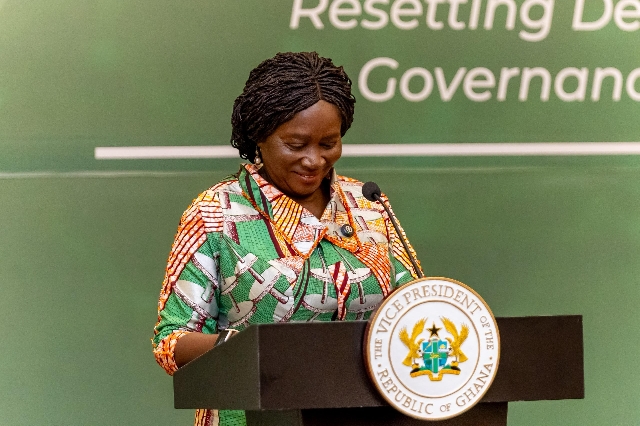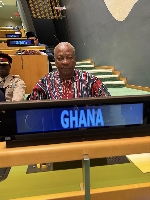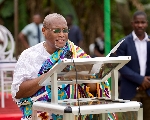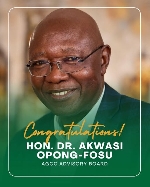Veep pledges stronger support for local governance
 Prof Jane Naana Opoku-Agyemang on the campaign trail
Prof Jane Naana Opoku-Agyemang on the campaign trail
Vice President Prof. Jane Naana Opoku-Agyemang has reaffirmed the government’s commitment to strengthening Ghana’s decentralisation drive, describing it as central to the Reset Agenda for national development.
Delivering the keynote address at the Maiden National Dialogue on Decentralisation and Responsive Governance at the Kempinski Hotel in Accra, the Vice President said Ghana’s democracy and development could only thrive if local governments were well-resourced, functional, and accountable.
“Building a capable state must begin with functional and ethical local governments.
We must commit to giving citizens a stronger voice, as prescribed by the directive principles of state policy in our constitution,” she stated.
Highlighting progress made, Prof. Opoku-Agyemang disclosed that over GHS 2 billion has already been disbursed through the District Assemblies Common Fund to support development initiatives and improve essential services at the community level.
She stressed, however, that resources alone were not enough, calling for data-driven, evidence-based interventions that respond directly to citizens’ needs.
Citing Uganda as an example, the Vice President noted that when fiscal transfers are combined with strong citizen monitoring, outcomes in health and education improve significantly.
“When decentralisation is matched with real empowerment and accountability, the results can be profound,” she added.
Outlining the government’s priorities under the Reset Agenda, she announced key reforms including:
Increasing allocations to the District Assemblies Common Fund;
Moving towards the election of Metropolitan, Municipal, and District Chief Executives (MMDCEs);
Supporting assemblies to boost their own-source revenues;
Leveraging local revenues to attract private capital for development.
She further revealed that work is progressing steadily on the National Decentralisation Policy and Strategy (2026–2030), which will provide a framework for transferring more power, authority, and resources from the centre to subnational levels.
The two-day dialogue, which brought together government officials, Members of Parliament, development partners, traditional and religious leaders, and civil society, is expected to shape policy direction for the next five years.
“Let us envision a Ghana where governance is closer to the people, where institutions are responsive, and where citizens are active participants in shaping their paths,” the Vice President said, officially declaring the dialogue open.
Source: Classfmonline.com/cecil Mensah
Trending News

Mahama delivering on promises – Asiedu Nketia tells NDC supporters
13:10
Ghana Health Service launches 2025 Family Planning Week with renewed commitment to universal access
17:46
President Mahama set to address United Nations General Assembly
15:17
Dr. Toni Aubynn supports first-year SHS students in Wassa Damang
17:09
Ghana, Norway sign political consultations agreement to boost bilateral ties
14:59
Tensions rise at GRIDCo over CEO’s continued stay despite retirement directive
11:05
V/R: Gov't to strengthen TVET in Klefe Traditional Area
12:58
Akwasi Opong-Fosu appointed to Advisory Board of Africa Global Chamber of Commerce
17:14
Veep pledges stronger support for local governance
14:39
GAREB condemns journalist’s remarks on TV3’s New Day
16:50




